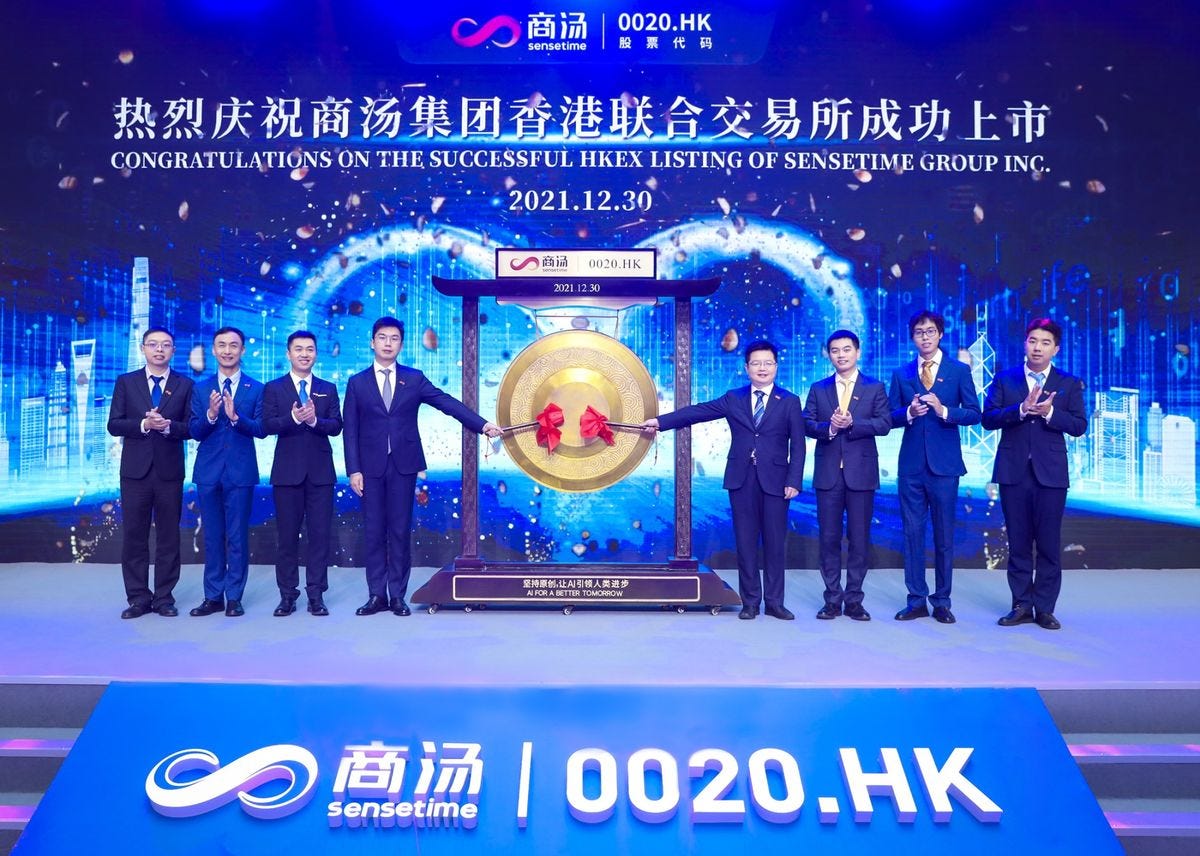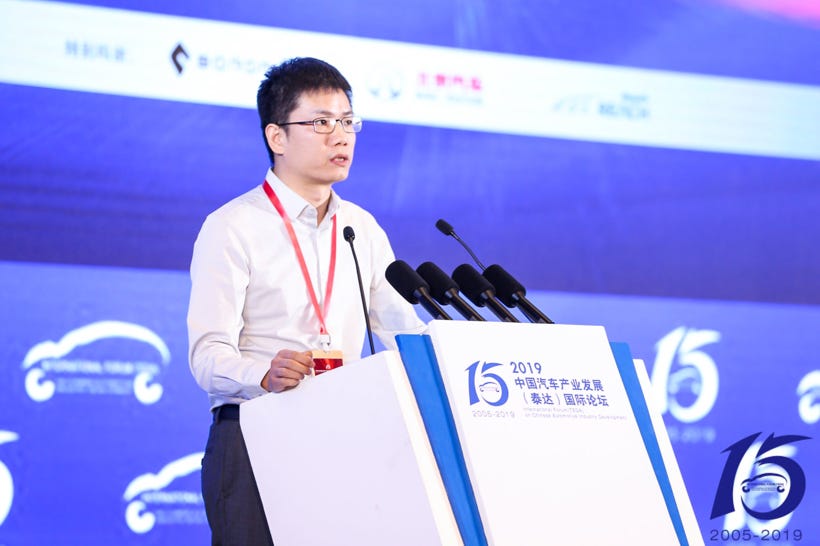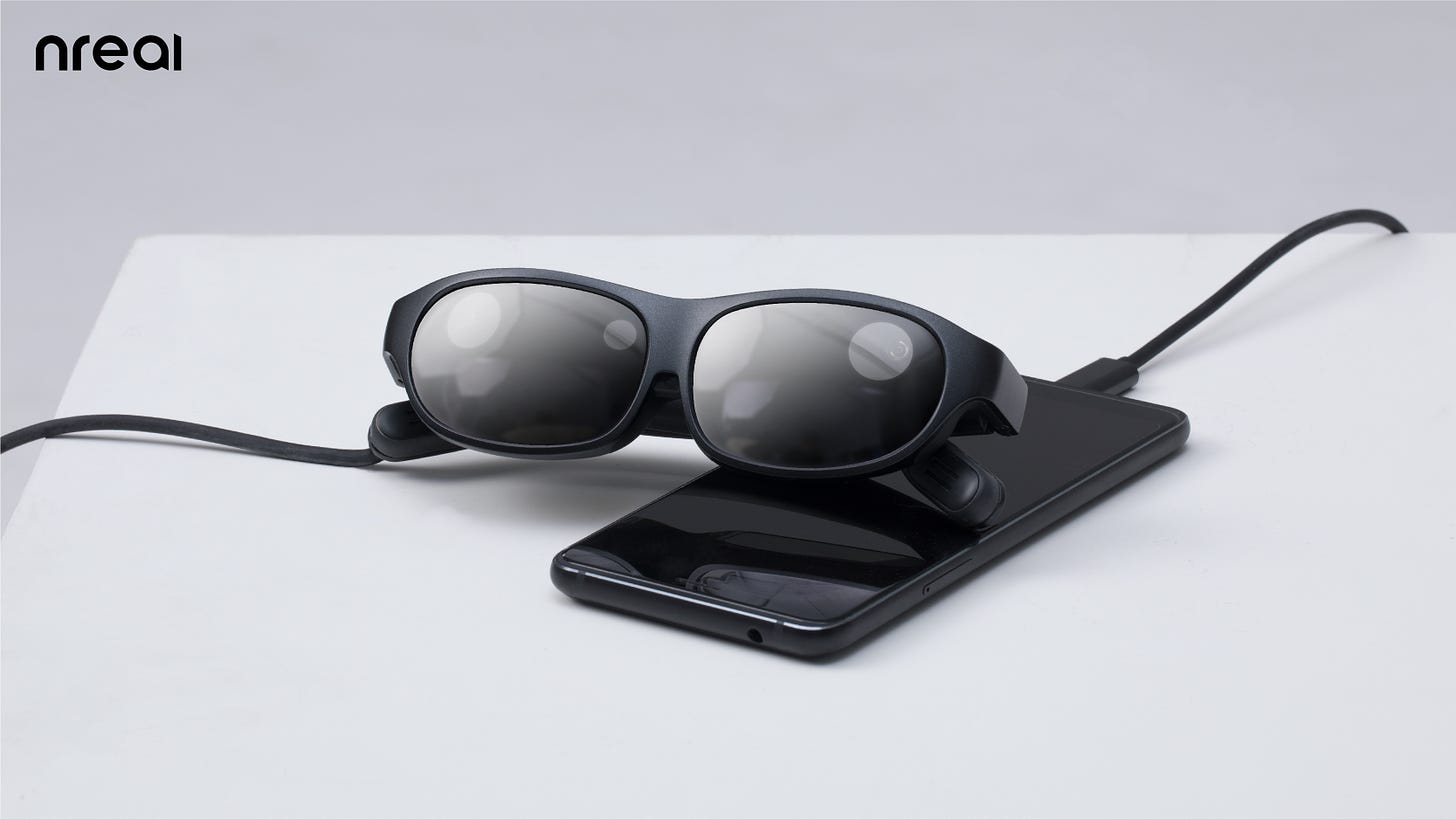Slime Robot Grabs Swallowed Objects; SenseTime Revenue Grows Despite $2.7B Net Loss; Transformer Architecture Search Without Training
Weekly China AI News: March 28 to April 3
Dear readers, my hometown Shanghai has entered a phased city-wide lockdown starting March 28 and ordered PCR testing for over 25 million residents. The curb has not been lifted on April 5 as scheduled. Regardless of the legitimacy of China’s zero-covid policy, let’s pray for the city and hope their lives can get back to normal soon.
News of the Week
Slime Robot Promises to Retrieve Swallowed Objects from Your Stomach
Researchers from the Chinese University of Hong Kong demonstrated a magnetic slime robot that can potentially grab solid objects from your stomach or fix two broken circuits, New Scientist reported. The study was published in the peer-reviewed journal Advanced Functional Materials.
The dark-colored soft robot can deform itself to navigate physically restricted areas and narrow channels like humans’ digestive systems. Made of a mixture of a polymer and particles of neodymium magnet wrapped with silicon, the robot is a combination of both deformability and adaptability that can be manipulated by external magnets to flow through any complex environment. The robot can also encircle smaller objects and self-heal them when cut in two.
Why it matters: While the robot is still an early lab result and far away from implementation due to the toxicity of magnet particles, researchers believe the work could be applied in biomedical, electronic, and other fields.
SenseTime Revenue Surges on China’s Growing Demand for AI Computing, Metaverse
SenseTime announced its long-awaited first annual financial results since its market debut in November, reporting revenue of RMB4.70 billion yuan in 2021 with a gross profit margin of 69.7%. The company expects to ascend on the nation’s significant market demand for AI computing services, metaverse, and autonomous driving.
Break down the numbers: SenseTime’s revenue in 2021 increased by 36.4% year-on-year. However, the company‘s net loss reached RMB17.17 billion yuan in 2021, adding to an accumulated loss of RMB37.6 billion yuan between 2018 to 2021. The adjusted net loss is RMB1.4 billion yuan. The staggering loss could be attributed to SenseTime’s high costs of mastermind hunting. The company said the number of research personnel increased from 1,500 to 4,200 in 2021, representing 70% of the total number of the company’s staff.
Why it matters: As one of the largest AI companies in China, SenseTime’s financial performance reflects the commercialization prospect of Chinese AI companies. The company is doubling down on the digitalization of Chinese cities that is hungry for massive computing capacity, as well as the acceleration of Metaverse and autonomous driving applications.
Baidu Veterans Start New Self-Driving Tech Companies
Two Baidu execs who have been working for the Chinese tech giant for more than nine years have both started their new companies.
Ji Tao, former GM of Baidu’s smart transport unit and a founding member of Baidu’s self-driving project Apollo, has joined Qiangua Technology (千挂科技) as CEO and co-founder. Founded in 2017, the company aims to build Level-4 heavy-duty autonomous trucks to automate road freight in China, a market expected to hit $767 billion by 2026.
Jingao Wang, former executive director of Apollo and a founding member of the Apollo autonomous driving open platform, has joined Pegasus (云骥智行), a four-month-old self-driving startup that is said to have raised RMB2 billion yuan. The company was founded by Michael Wen Zhang, a lawyer-turned-entrepreneur who was the president of SenseTime and now the CEO of Biren Technology, a Chinese GPU developer.
Baidu, the Chinese top search engine and now an AI XXX, once assembled a team of China’s best masterminds to pursue the holy grail of fully autonomous vehicles. A majority of China’s leading self-driving tech companies are founded by Baidu veterans, including robotaxi developers like Pony.ai and WeRide, chip developers like Horizon.ai, HD maps specialists like DeepMap, and robotruck companies like Qiangua.
Why it matters: While progress toward a wide-scale launch of a robotaxi service is falling behind schedule, the capital continues to flow into the bags of young, emerging self-driving startups tagged with “Baidu veterans”.
Papers & Projects
Three CVPR’22 papers!
Transformer Architecture Search Without Training
Neural architecture search methods have become a popular method to design an artificial neural network to reduce human efforts. It works effectively in finding optimal CNNs with zero-cost schemes, but what about the recent rock star Vision Transformers? Researchers from Tencent, Xiamen University, and Peking University, investigate how to conduct TAS in a training-free manner and devise an effective training-free TAS (TF-TAS) scheme. Experimental results demonstrate that the TF-TAS achieves competitive performance against the state-of-the-art manually or automatically design ViT architectures, and it promotes the searching efficiency in ViT search space greatly: from about 24 GPU days to less than 0.5 GPU days. Read the paper Training-free Transformer Architecture Search.
A Real-World Articulated Object Database
A team of researchers from Shanghai Jiaotong University presented AKB-48: a large-scale Articulated object Knowledge Base that consists of 2,037 real-world 3D articulated object models of 48 categories. Each object is described by a knowledge graph ArtiKG. To build the AKB-48, we present a fast articulation knowledge modeling (FArM) pipeline, which can fulfill the ArtiKG for an articulated object within 10-15 minutes, and largely reduce the cost for object modeling in the real world. Using our dataset, we propose AKBNet, a novel integral pipeline for Category-level Visual Articulation Manipulation (C-VAM) task, in which we benchmark three sub-tasks, namely pose estimation, object reconstruction, and manipulation. You can find the dataset, codes, and models here.
Larges Datasets for Video Copy Detection
Researchers from Ant Group introduced VCSL (Video Copy Segment Localization), a new comprehensive segment-level annotated video copy dataset. Compared with existing copy detection datasets restricted by either video-level annotation or small-scale, VCSL not only has two orders of magnitude more segment-level labeled data, with 160k realistic video copy pairs containing more than 280k localized copied segment pairs but also covers a variety of video categories and a wide range of video duration. The VCSL dataset, metric, and benchmark codes are here.
Rising Startups
Nreal, a developer of ready-to-wear augmented reality glasses, has raised $60 million in its Series C funding round led by Alibaba. Founded in 2017, the Beijing-based startup has launched consumer-facing augmented reality products like Nreal Light, a lightweight phone-connected AR glass with two displays showing 3D images superimposed into the real world. You can visit Nreal for more.
Zongmu Tech, a supplier of autonomous driving and advanced driving assistant system (ADAS) technologies and products, has raised RMB1.0 billion ($157 million) in its Series E funding round. Founded in 2013, the Shanghai-based company is a key supplier of Changan Auto by providing automated parking solutions and sensors. You can visit the company here.







